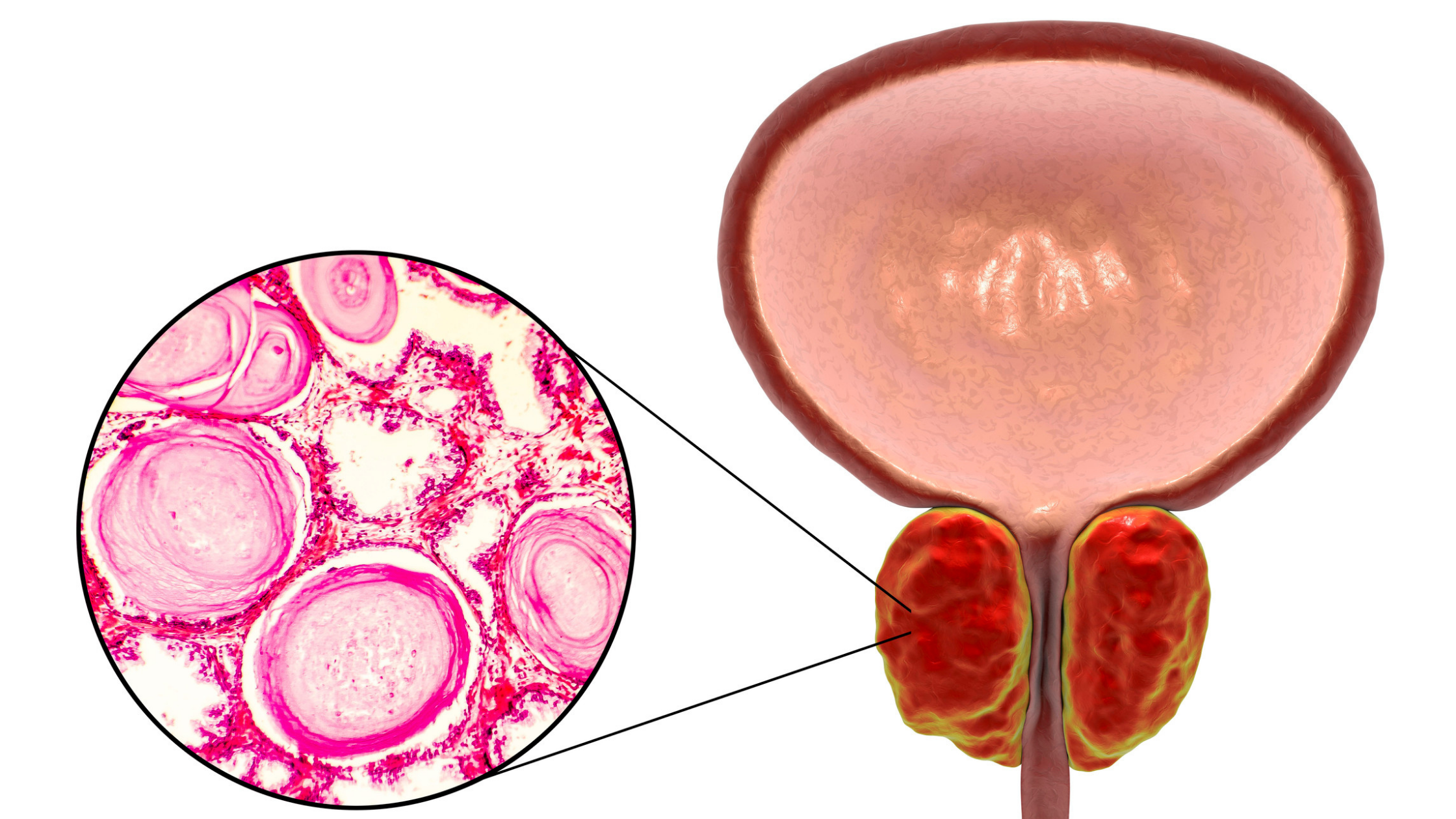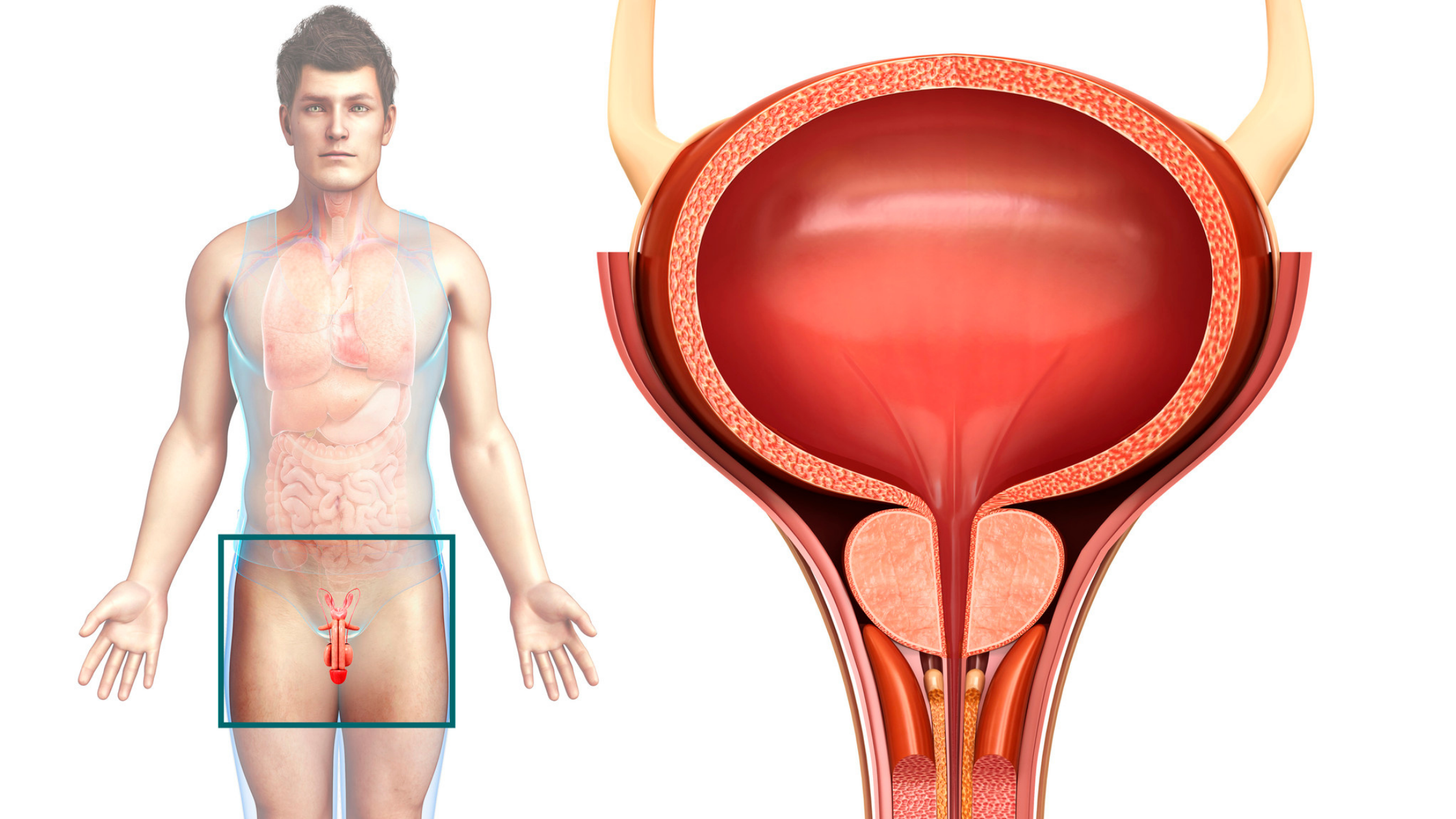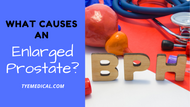What Causes an Enlarged Prostate and Is It Preventable?
Written by Tye Medical on Apr 29th 2021
If you’re a man dealing with prostate problems, you’ve probably wondered what causes an enlarged prostate aside from the age factor. What exactly is going on down there?
The walnut-shaped prostate gland is a vital part of the male reproductive system, generating the fluids necessary for semen production. It sits right below the bladder and surrounds the urethra, which means it can directly affect the urinary tract.
If you live long enough, it’s nearly inevitable that you’ll develop an enlarged prostate, also known as BPH (benign prostatic hyperplasia). About 30% of men over 50 will develop the condition, and 90% will develop it by age 85.
But what causes this condition, and is prevention possible?
What Is an Enlarged Prostate (BPH)?

Although men are born with a prostate, it begins an accelerated growth phase in early puberty, nearly doubling in size. The gland continues enlarging throughout most of your life, even past the age of 50, which is why an enlarged prostate is common in older men.
It’s considered BPH when the prostate grows large enough to press or pinch the urethra.
But notice that it’s called benign prostatic hyperplasia, meaning that it isn’t associated with prostate cancer. If you have BPH, it doesn’t make you more likely to develop cancer.
What Causes an Enlarged Prostate?
Scientists believe hormones play a significant role in developing BPH, but they have different theories about which hormones are most responsible.
The first theory suggests testosterone and estrogen impact BPH the most. When testosterone levels drop with age, a greater proportion of estrogen exists in your system. And it’s this higher percentage of estrogen that indirectly increases prostate cell growth.
The second theory proposes that the male hormone dihydrotestosterone (DHT) is the critical factor. It’s converted from testosterone and is involved in prostate development and growth. Your body continues to produce DHT even as testosterone levels drop.
As high levels of DHT accumulate in your prostate, it encourages growth. Men who don’t produce DHT or produce in smaller quantities are not as likely to develop an enlarged prostate.
Both theories may contribute to the development of BPH.
How to Prevent BPH

The role your hormones play in BPH depends mainly on genetics. Of course, you can’t stop the aging process, which ultimately causes an enlarged prostate.
It might seem like there’s no way to avert the onset of this condition, but you might be able to postpone it or at least reduce the symptoms if you follow these lifestyle suggestions.
- Maintain a healthy weight
- Keep a healthy blood pressure
- Exercise regularly
- Don’t smoke (or stop)
- Avoid antihistamines and decongestants as much as possible
- Limit caffeine intake
- Limit alcohol consumption (heavy drinking promotes BPH)
When you live a healthy lifestyle, it notably affects your hormone production and balance in positive ways, making it a critical factor in prostate health and offsetting BPH.
Does BPH Affect Sexual Health?
Even after understanding what causes an enlarged prostate, you might still wonder how it affects your sex life.
While BPH doesn’t directly affect your sexual function, some medications that treat an enlarged prostate might have sexual side effects, such as ED (erectile dysfunction).
However, if you’re experiencing both ED and BPH (which is common among older men), some ED medications can also improve BPH.
Medications that Can Treat ED and BPH
- tadalafil (Cialis)
- sildenafil (Viagra)
- vardenafil (Levitra)
These medications increase blood flow to the penis and relax cells in the bladder and prostate, increasing urine flow and promoting bladder emptying.
How Does BPH Affect Your Bladder?

Your prostate is nestled right beneath the bladder, with the urethra running through it. This means that when it’s enlarged, it can cause uncomfortable symptoms in the urinary tract.
When the prostate squeezes the urethra, it creates an obstruction that makes passing urine more difficult. Often, it keeps you from emptying your bladder. Incomplete emptying makes you more susceptible to UTIs (urinary tract infections), overflow incontinence, and frequent urination.
You might even have difficulty beginning a stream of urine or dribble more than usual after finishing. If you are experiencing incontinence and want to learn more about the different types, causes, and treatments, check out our guide Everything You Want to Know About Male Incontinence.
But what causes an enlarged prostate besides BPH?
Sometimes it’s due to prostatitis, but prostate cancer is a possibility. Just because your bladder symptoms are minimal, don’t skip a visit to your doctor. A significantly enlarged prostate might cause only mild symptoms in some men.
It’s best to have your doctor determine any other underlying causes for your enlarged prostate, such as cancer.
Is BPH Causing Your Urine Leaks?
Whether it’s increased dribbling or overflow incontinence, you need super absorbent, high-quality, comfortable protection.
For moderate to heavy bladder leaks, try our TYE Medical LivDry Protective Underwear.
Live confidently and discreetly with incontinence products from TYE Medical.


